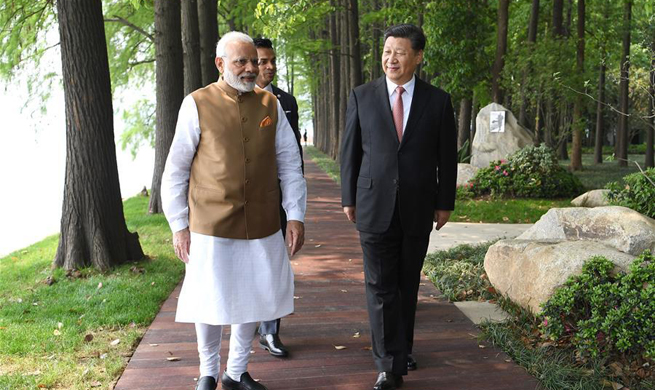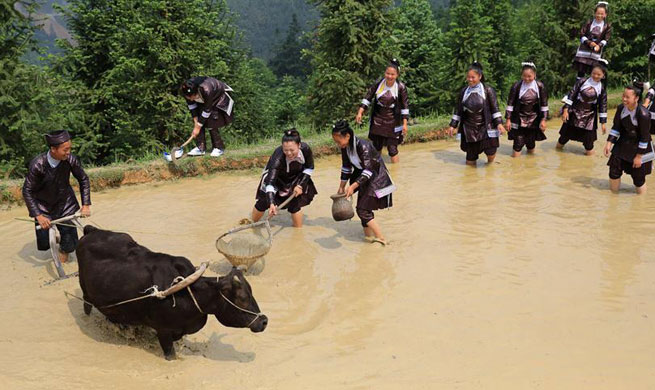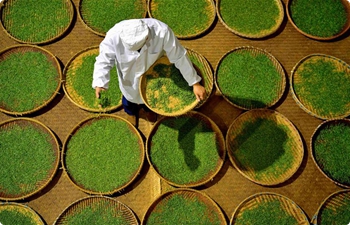HEFEI, April 30 (Xinhua) -- Lin Tao's father, a farmer, sent him to college, expecting him to find a job in the city. But Lin defied his hopes and returned to the village.
"I didn't want him to live in the village back then," recalled Lin Chenglin, the father, when his son came back in 2013. "It's not a place for an ambitious young man."
In 2013, Lin's hometown of Qingxu village in east China's Anhui province was suffering from a loss of workers, with many young people leaving for jobs in cities and land left unattended.
Like many parents in rural China, the senior Lin considered college education an opportunity for his boy to break away from laborious physical work, and for the family to have something to be proud of.
Yet the son beat his father's expectations again by pursuing a career in farming in his hometown.
He started a family farm in his village. By persuading villagers to lease their unused plots of land, Lin amassed 900 Mu (60 hectares), on which he used agricultural machinery to boost efficiency.
In 2017, the younger Lin made more than 300,000 yuan from his new agricultural venture, four times the annual salary of his previous job working at a car company in the provincial capital.
His father has also changed his mind.
"He is educated and self-motivated. We need more people like him in the villages," Lin Chenglin said of his son.
Lin's success has come as China is implementing its strategy to revitalize the countryside, with agriculture being a priority.
Since the 1980s, the country has been shifting away from a preoccupation with producing enough grain toward improving rural incomes by incentivizing farmers to use arable land more efficiently.
Educated young people like Lin are increasingly contributing to the process.
His home province of Anhui registered 77,000 family farms in 2017. Of the 1,298 model family farms selected by the provincial agricultural bureau, more than 170 have been set up by college graduates returning to their hometowns.
"The local government has helped me with bank loans and offered a 30-percent subsidy for the large machinery I bought," said Lin Tao. "I also attended agricultural training sessions in the village."
Despite returning home, the college graduate has kept his city style. When field work is done, he puts on his shirt and neat trousers. "This should be a farmer's new look." he said.

















